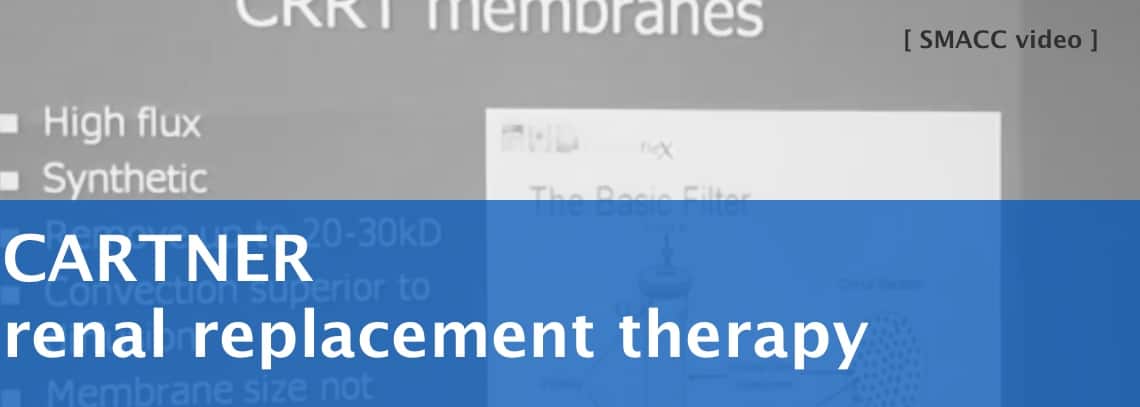Renal Replacement Therapy
By Dr Michaela Cartner
Part 2 of the 4 part series of renal replacement therapies, Dr Michaela Cartner (@Mjcartner) from the Gold Coast University Hospital provides an introduction to the different types of renal replacement therapy. The different modes include CRRT, IHD and SLED.
CRRT – continuous renal replacement therapy is the most commonly used dialysis therapy in the ICU. As the name suggests, CRRT is a slow form of dialysis that runs continuously over 24 hours. It is only indicated for AKIs and is favoured in the ICU for its haemodynamic stability and ease of operation. Some limitations of CRRT are that it requires the patient to be immobile, there is a heavy nursing workload, and it requires anticoagulation, among other factors.
IHD – intermittent haemodialysis is usually reserved for outpatient dialysis and runs over 3-4 hours multiple times a week. It is a high blood flow system which effectively removes low weight molecules and therefore doesn’t require anticoagulation and is ideal for managing hyperkalemia. It is less suitable for the ICU setting due to the potential for haemodynamic instability, dialysis/electrolyte disequilibrium syndrome (DDS) and the technical/practical difficulties.
SLED – sustained low-efficiency dialysis is midway between CRRT and IHD. It is usually run over 6-12 hours and has a moderate flow rate. It is similar to IHD in its effectiveness in managing hyperkalemia but doesn’t have the same potential for DDS, doesn’t require anticoagulation, and maintains haemodynamic stability. SLED is becoming more widely accepted as the haemodialysis modality of choice in intensive care units for its ease of use, shorter treatment time and similar mortality rates (compared with CRRT). Much of the reluctance to change is due to the clinical unfamiliarity and high start-up costs.
[/az_box_icon]
[/az_box_icon][az_buttons animation_loading=”yes” animation_loading_effects=”move_up” buttonlabel=”SMACC Gold” target=”_self” buttonsize=”button-large” checkicon=”no_icon” icon=”font-icon-phone” buttonlink=”https://intensivecarenetwork.com/media/podcasts/smacc-gold-podcasts/”]

























